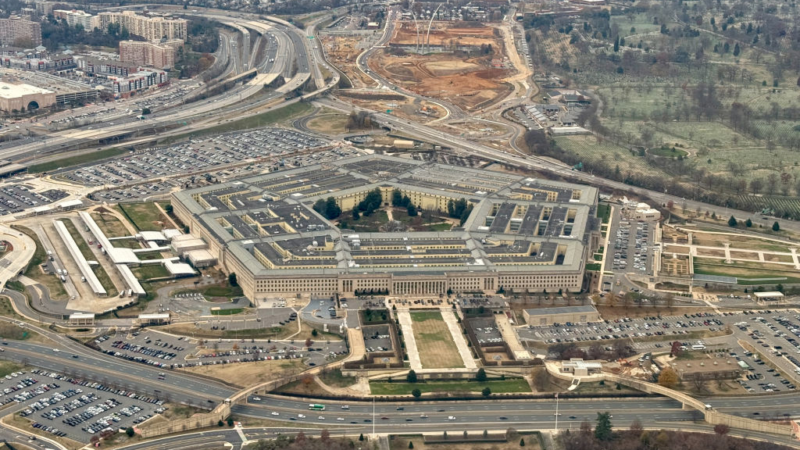Elon Musk’s team is expected to target the Pentagon soon, pledging cost cuts
Members of Elon Musk’s government efficiency team are poised to arrive at the Defense Department in the coming days. Officials tell NPR that DOGE has a target of cutting 8% from next year’s budget. The officials were not authorized to speak publicly and provided details on condition of anonymity.
Targets will likely include the workforce, which Defense Secretary Pete Hegseth already said has grown too much. The unit called the Department of Government Efficiency has been rapidly moving throughout the federal workforce, restructuring and cutting personnel across multiple agencies.
The Pentagon employs 3 million troops and civilians, with a budget well over $800 billion.
“We won World War II with seven four-star generals,” Hegseth said during his confirmation hearing. “Today we have 44. … There is an inverse relationship between the size of staffs and victory on the battlefield. We do not need more bureaucracy at the top. We need more warfighters empowered at the bottom. So, it is going to be my job … to identify those places where fat can be cut, so it can go toward lethality.”
Dov Zakheim, who served as Pentagon comptroller during the administration of George W. Bush, agreed that there has been a steep increase in personnel over the last two decades, since the wars in Iraq and Afghanistan, but he also urged caution.
“We have nowhere near the same level of military operation,” Zakheim told NPR. “Bottom line, there certainly can be budget cuts. The issue is how the cuts are made. Too often ‘cut drills’ involve cutting the most promising new developments while protecting legacy systems.”
It appears, however, some legacy systems could be on the chopping block, like F-35 aircraft and armored vehicles. Trump officials are expected to push for more cutting-edge technology that could include drones, hypersonic missiles and cyber equipment. There is also expected to be an increase in shipbuilding to keep pace with China.
Taiwan’s president pledges to defend island’s sovereignty after Chinese military drills
Taiwanese President Lai Ching-te vowed to defend the self-ruled island's sovereignty in the face of what he termed China's "expansionist ambitions," days after Beijing wrapped up live-fire military drills near its shores.
Deaths reported during widening protests in Iran sparked by ailing economy
The protests began due to economic pressures, with Iran's currency rapidly depreciating. Demonstrators have also chanted against the country's theocracy.
Congress failed to extend Obamacare subsidies. This Democrat says Trump can save them
Sen. Peter Welch, D-Vt., says he thinks the Senate can pass a "retroactive" Affordable Care Act subsidy extension, but "we need President Trump."
Rideshare union rights, social media limits and other state laws taking effect Jan. 1
Every new year, public media reporters across the country bring us some of the new state laws taking effect where they are. Here are six in 2026.
Guides to help you tackle your New Year’s resolutions
From building your strength to tackling credit card debt, NPR's Life Kit has a newsletter journey to help you tackle your New Year's resolution.
Guides to help you tackle your New Year’s resolutions
From building your strength to tackling credit card debt, NPR's Life Kit has a newsletter journey to help you tackle your New Year's resolution.






